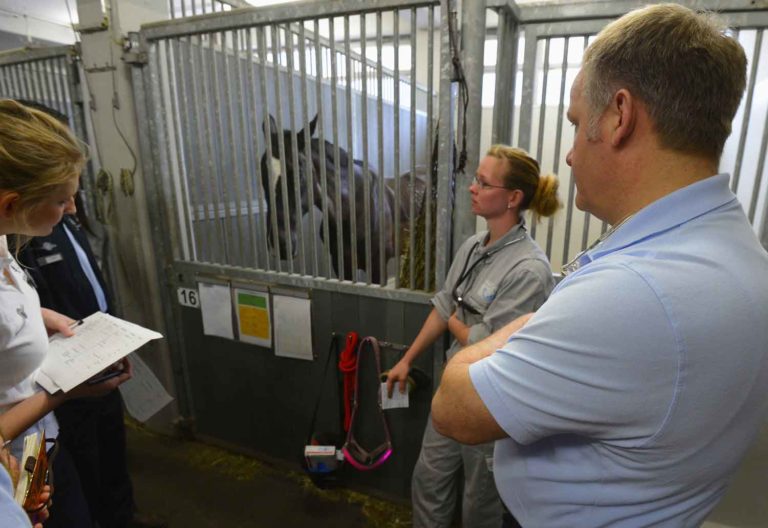
An objective in managing endometritis is to improve the health of the uterus with the least amount of antibiotics possible. It is suggested that 15% of mares experience endometritis, often without any clinical signs or recognition until infertility requires veterinary attention.
A novel immunomodulatory treatment—Settle(NovaVive, Inc.)—uses the cell wall fraction of a non-pathogenic soil-borne Mycobacterium (MCWF) to treat Streptococcus zooepidemicus.
Data from the Gluck Equine Research Center was presented at the 10th Leipzig Veterinary Workshop on Equine Reproduction in Germany. The product is not an antibiotic but rather works as an immunomodulator to stimulate the mare’s cell-mediated immune system by decreasing pro-inflammatory cytokine production and increasing anti-inflammatory cytokine production.
The result is to decrease infiltration of bacteria and neutrophils while also decreasing uterine fluid accumulation.
This treatment is able to be given IV or intrauterine (IU) within 24 hours post-breeding to normalize the immune response and limit the risk of infection. It is also useful following delivery of a foal to decrease inflammation, enhance bacterial clearance, and hasten uterine involution.
A study included 16 post-partum mares split into three treatments:
- Two doses of Settle given a week apart IV;
- One dose of Settle every three days until ovulation;
- Two doses of lactated ringer’s solution (LRS) one week apart.
Bacterial cultures and cytology were obtained every 72 hours of the study mares’ reproductive tracts. The results found that the maximum effect to assist with bacterial elimination from the uterus was achieved with a two-dose series administered one day and one week following foal delivery.
Another study demonstrated rapid return to ovulation within 11 days of Settle treatment that then enabled normal pregnancy at foal heat—64% in Settle-treated mares compared to 24% of mares treated with a placebo.
Such an option to reduce the risk of endometritis without antibiotics is helpful in reducing development of antibiotic resistance while providing an invaluable therapy in equine reproductive medicine.

![[Aggregator] Downloaded image for imported item #18782](https://s3.amazonaws.com/wp-s3-equimanagement.com/wp-content/uploads/2025/11/03125751/EDCC-Unbranded-13-scaled-1-768x512.jpeg)
![[Aggregator] Downloaded image for imported item #18375](https://s3.amazonaws.com/wp-s3-equimanagement.com/wp-content/uploads/2025/09/30140031/EDCC-Unbranded-26-scaled-1-768x512.jpeg)

